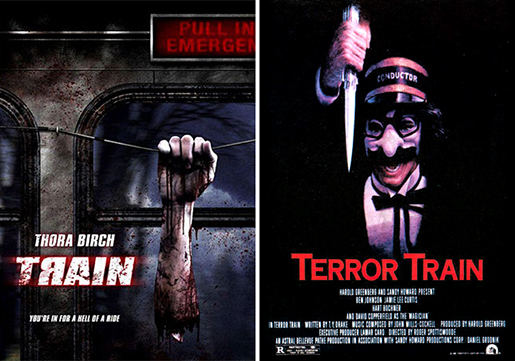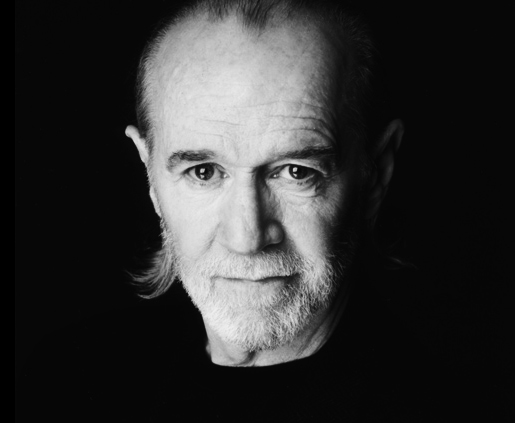
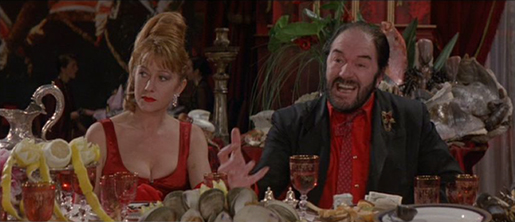
Served Scolding, Heavily Trysted, and Blood-Thirsty!
This sumptuously lurid play, by Peter Greenaway, on depravity, sexual oblivion, and Jacobian revenge remains the most accessible and compelling in his filmography. It is also one of the few films I hold closest to my heart. The Cook, The Thief, His Wife & Her Lover (1989) is simultaneously simple and deceptive beginning with the film’s title. The main characters could stand for an angry allegory about greedy Thatcher-inspired bullies exploiting the working class citizens of Britain. Then again, perhaps this tale of excess, rape, and cannibalism is a heightened account about deeply wounded souls.
Le Hollandaise is a grotesquely bourgeois restaurant where the thief Albert Spica (Michael Gambon, Gosford Park, 2001), his wife Georgina (the indispensable Helen Mirren, Gosford Park and Last Orders, 2001), and his goons (Tim Roth and Ciarán Hinds) dine every night. We are introduced to Albert as he force-feeds a lowly member of the kitchen staff owing money his excrement, and elaborating on its value: “I eat the very best and that’s expensive!”
The cook, Richard Borst (Richard Bohringer, Diva, 1981) stands up to the thief’s boorish threats concerning his offered “protection” with a collected reserve that masks deep rage – “If you button your expensive jacket, Mister Spica, you feel less…empty inside, Mister Spica.” Seated in the center of the operatic dining room, Albert’s hostility extends toward everyone around him, including the patrons. Georgina, who Albert crudely dubs, “Georgie”, often berated and beaten by her husband, is quietly defiant. She makes eye contact with Michael, a quiet intellectual (Alan Howard, The Lord of the Rings: The Return of the King, 2003) as he eats and reads in the corner. Their infatuation leads to many excuses for a rendezvous in the opulent lavatory, where she and tender, love-handled Michael make desperate, explicit love as a means of escape.
Their sexual escapades take them behind closed doors in the kitchen, a secret quietly kept by the restaurant’s workers. Albert, obvious to being a cuckold, continues displaying his virtuoso nastiness with loud, arrogant (and darkly hilarious) commentary punctuated by violence: “I think Ethiopians like starving!” and “Human milk should be considered a delicacy.” Everyone around him is reduced to frightened submission. One night, he invites Michael to his table where he picks on his reading habits, “Does this stuff make money?” After having badly-bruised Georgina dictate how wonderful her life is (“Tell Michael you live in a big house and you spend a thousand pounds a week on clothes!”), she retaliates with news about her gynecology appointments (“Being infertile makes me a safe bet for a good screw.”) Albert drags her across the parking lot for that one. CONTINUE READING ►
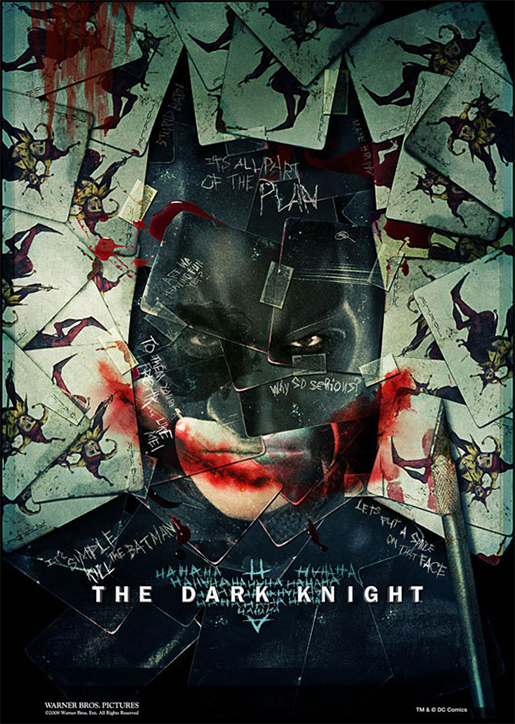
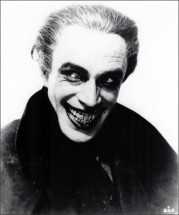















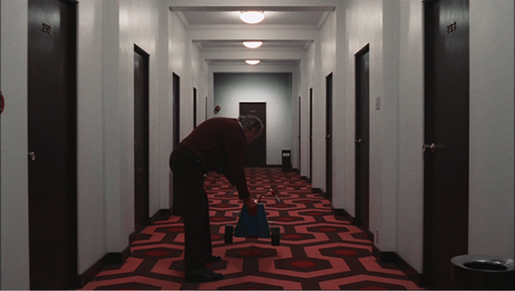
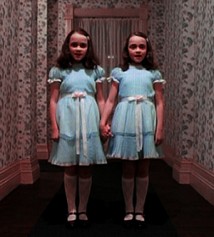 The attention to detail is absolutely terrific from the recreated sets that look exactly like the original Overlook Hotel corridors and hedge maze from thirty years ago to the lighting and lens choice — a 25mm Cooke lens that was favored by Kubrick. The amount of visual in-jokes will have die-hard Shining enthusiasts viewing it several times before none have escaped their close attention. I marvel at the prospect that the filmmakers even cast Kubrick’s crew to look like the real-life counterparts including John Alcott, Kubrick’s longtime director of production before his death in 1986. Watch out carefully for a half-dozen dead ringers of The Shining’s most prominent characters. Oh, and the tricycle that appears at the end is the real deal. This is the type of work ethic that makes me beam with joy.
The attention to detail is absolutely terrific from the recreated sets that look exactly like the original Overlook Hotel corridors and hedge maze from thirty years ago to the lighting and lens choice — a 25mm Cooke lens that was favored by Kubrick. The amount of visual in-jokes will have die-hard Shining enthusiasts viewing it several times before none have escaped their close attention. I marvel at the prospect that the filmmakers even cast Kubrick’s crew to look like the real-life counterparts including John Alcott, Kubrick’s longtime director of production before his death in 1986. Watch out carefully for a half-dozen dead ringers of The Shining’s most prominent characters. Oh, and the tricycle that appears at the end is the real deal. This is the type of work ethic that makes me beam with joy.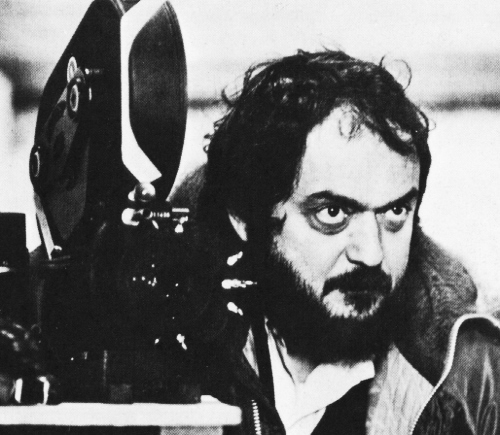 Citizen Kubrick, a new documentary by Jon Ronson will first head off ten of the selected movies from Kubrick’s generous filmography. The chosen films range from the most famous (Lolita, 1962; 2001: A Space Odyssey, 1968; Barry Lyndon, 1975) to the most obscure (Killer’s Kiss, 1955; The Killing, 1956). After watching the documentary Stanley Kubrick: A Life in Pictures (2001) by Jan Harlan, one of Kubrick’s closest producers, I’m still very curious about the secretive genius. I am also relishing the published
Citizen Kubrick, a new documentary by Jon Ronson will first head off ten of the selected movies from Kubrick’s generous filmography. The chosen films range from the most famous (Lolita, 1962; 2001: A Space Odyssey, 1968; Barry Lyndon, 1975) to the most obscure (Killer’s Kiss, 1955; The Killing, 1956). After watching the documentary Stanley Kubrick: A Life in Pictures (2001) by Jan Harlan, one of Kubrick’s closest producers, I’m still very curious about the secretive genius. I am also relishing the published 